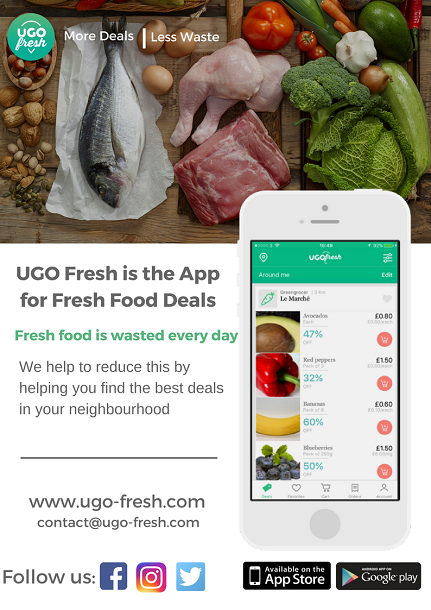Food waste in the UK
What is food waste?
Food is lost or wasted at every stage in the food supply chain, and can happen for several reasons. Food waste occurs when safe, nutritious food fit for human consumption is discarded by retailers or consumers because it has spoiled or expired.
Food waste is mainly caused by poor planning, the over-production of food, and surplus food stock in shops, restaurants and takeaway.
Within the retail and hospitality sector, food is often wasted because it has reached its expiration date or it does not reach the food quality, aesthetic standards of the retailer or because it has been prepared in advanced and/or by an insufficient foot traffic.
All food within this sector was originally intended to be sold and consumed, all food waste from the retail sector is considered avoidable. The most commonly wasted foods are perishable items, such as fresh products (fruit, vegetable, meat…) and prepared products (sandwiches, pizza…).
Food Waste in the UK
Within the UK, food waste is estimated that 10 million tons of food and drink is wasted every year. Of the 10 million tons of food wasted in the UK annually, 60% of it is avoidable. Households are the largest source of food waste in the UK, throwing away 7.3 million tons of food annually. Every year, the UK grocery supply chain creates 270,000 tons of edible food waste; equivalent to 400 million meals! Of the 270,000 tons of edible food waste arising from the retail sector, only 18% of it is redistributed to businesses or charities for food banks.
Why it matters
Food waste is a huge problem! Annually, one-third of the world’s food produced for human consumption is lost or wasted. Food waste has both negative economic and environmental implications. Food waste is costly for both retailers and households. The amount of food wasted in the UK annually has a value of over £17 billion, and household food waste costs an average household in the UK about £470 a year. Growing and producing food requires valuable natural resources, generates climate-warming greenhouse gasses, and has a significant ecological footprint, and food waste needlessly puts an even greater strain on the environment and our resources. According to a 2016 study by WRAP, UK food waste is responsible for 20 million tons of CO2 per year. And lastly, food waste matters because the majority of food waste is avoidable and edible.
What You Can Do
There are many things you can do to reduce the amount of food waste you produce. Being more mindful about the expiration dates of perishable items, shopping more smartly by planning your shopping trips and being realistic about the amount of food you can consume, as well as other simple changes in your consumer habits, can all help to reduce food waste.
Our app provides consumers with another easy way to reduce food waste and save money. By using our app, consumers can save edible food from being discarded by purchasing unsold food at reduced prices from shops, restaurants and takeaway. Food waste is a huge problem in the UK and throughout the world, but by working together we can solve this problem!
P.S. Don't forget to sign-up at the website to get updates from the team!






